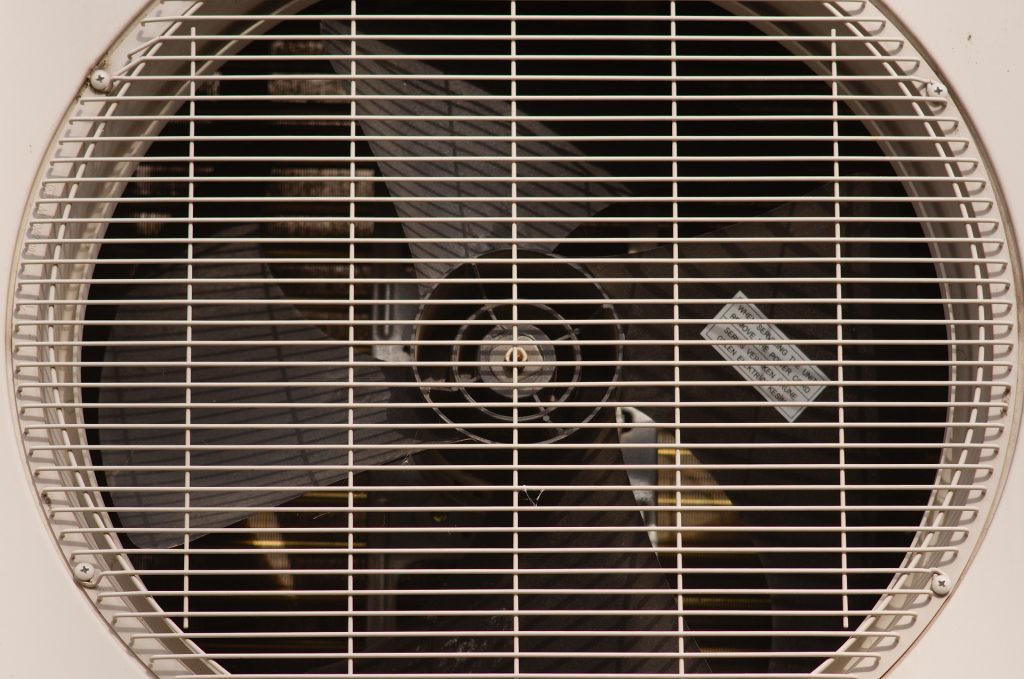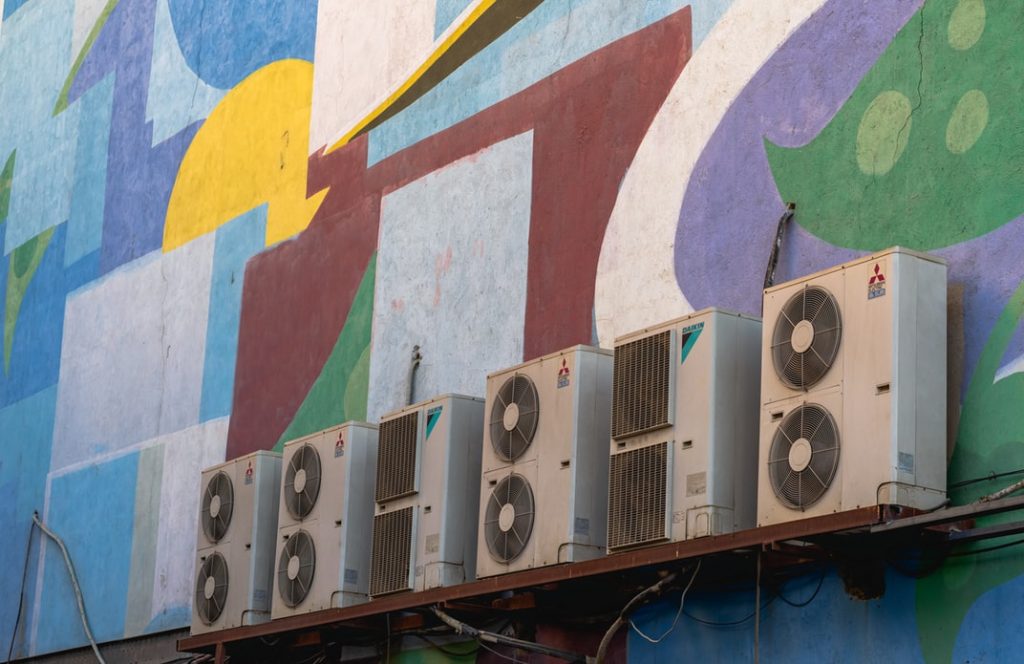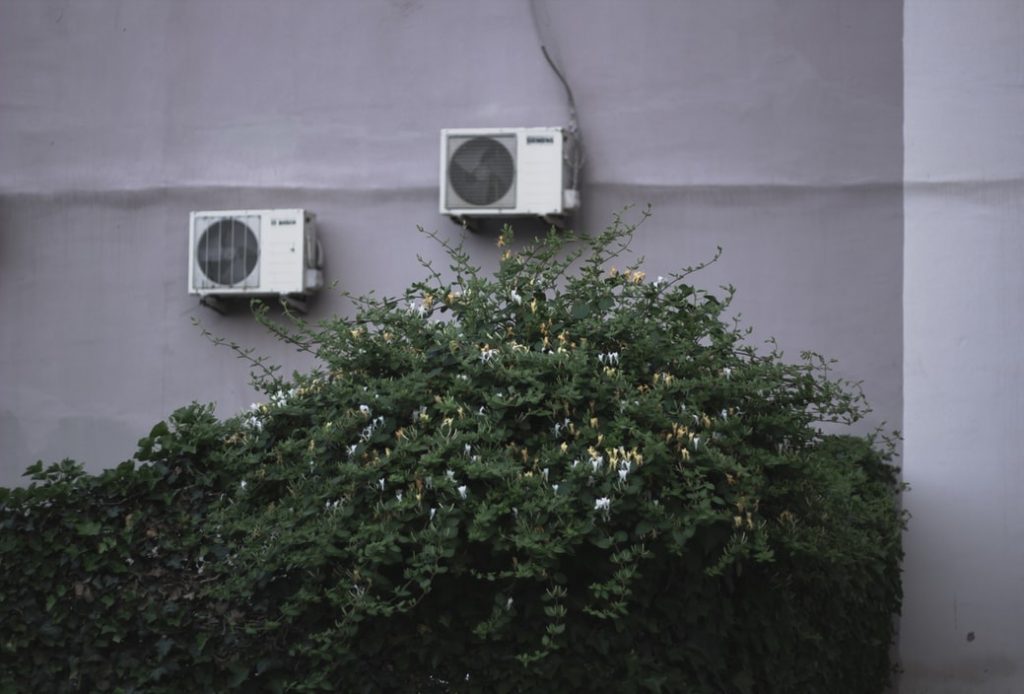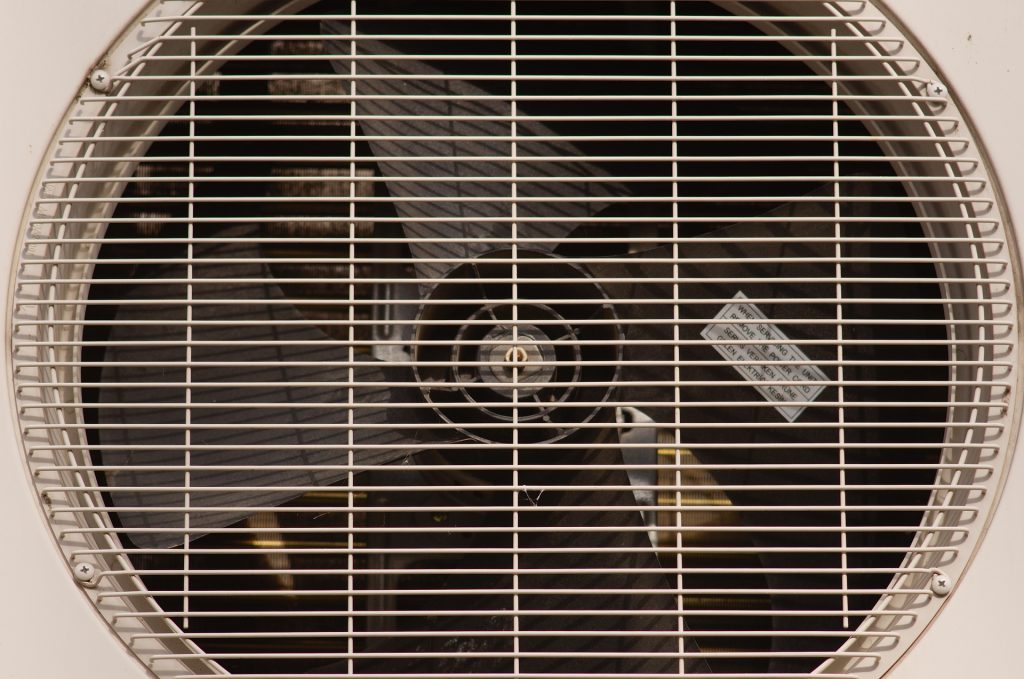We all know the important roles that compressors play in air conditioning units. They’re like the hearts of air conditioners. Just like the heart, air conditioner compressors are delicate and easily damaged. A noisy AC compressor is a bad sign. Here’s what it means – and what to do about it.
How do AC compressors work?
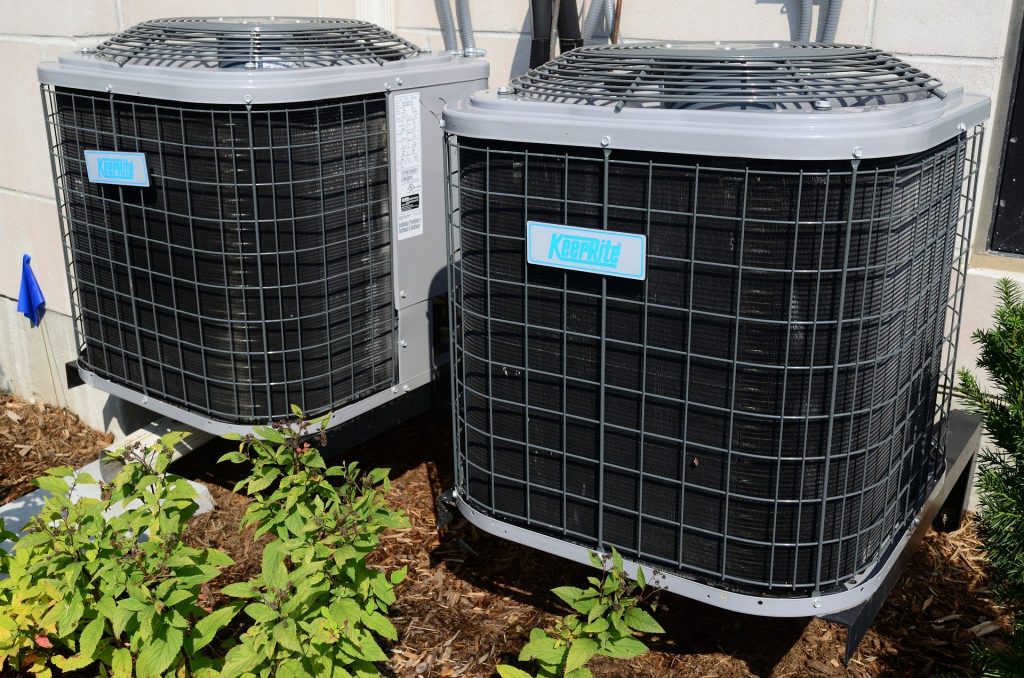
In case you didn’t know, air conditioners cool air by first absorbing your hot indoor air and exposing it to cold refrigerant that absorbs heat.
After heat absorption, the cold air is then pushed back into your room.
Ever wondered what happens to the now “warm” refrigerant? It’s then led to the air compressor that compresses the fluid refrigerant leading to an increase in pressure.
The pressure difference enables the refrigerant to flow to the evaporator coil.
Consequently, the compressor will also increase the temperature of the refrigerant until it’s way above the external outdoor temperatures- This will create a massive temperature difference that will allow the refrigerant to lose heat to the external environment.
The refrigerant will lose heat until it becomes cold and can be used for heat absorption once again.
With a faulty AC compressor, the refrigerant will not flow, and neither will it lose heat.
Good luck fighting off the Summer heat by yourself.
Luckily, we’re here to help- Don’t wait until your air conditioner is barely fighting for its life. A noisy AC compressor is a sign that something is wrong.
What does a bad AC compressor sound like? How do I deal with a noisy AC compressor? What are some of the common problems facing AC compressors? Read on to find the answers to these questions and hopefully save your AC compressor.
What does a bad AC compressor sound like?
A bad AC compressor sounds scary. Like something out of a horror movie.
Modern AC compressors are silent workers. Sure, some people have “older” models that produce some sound as they operate. However, it should not be anything out of the ordinary.
Therefore, there are some sounds you should be on the lookout for as you occasionally check on your air conditioner.
If you own a heat pump, you should also be on the lookout if your heat pump is constantly noisy.
1. Bangs and clangs
Probably the most embarrassing of noises.
Bangs and clangs are usually a sign that a component is loose in your AC compressor, especially if the sounds come right after turning your air conditioner on or off.
In the best-case scenario, all you’ll have to do is call in an HVAC professional to tighten any loose parts or re-attach them. In the worst-case scenario, you might have to replace the entire AC compressor. If that’s the case, contact us – the best air conditioning specialists in Phoenix.
Either way, we’d advise you to quickly get it fixed before the loose component damages other parts of your AC compressor.
2. Screams and squeals
Sometimes the screams are loud enough to send chills down your spine.
Screams are usually a sign of refrigerant leaks in the AC compressor unit. Screams are produced as the compressor tries to compress the fluid refrigerant inside evaporator coils full of holes.
Sometimes refrigerant leaks might not be the cause. Instead, it might be a warning of high pressure in the AC compressor. Still, this is just as dangerous as refrigerant leaks.
Immediately turn off your system and look for help. Don’t put your home and family at risk.
3. Clicks and ticks
These sounds are usually subtle. You’ll only hear them if you’re close enough to the AC compressor. Also, these noises are consistently heard as your unit runs.
Most of the time, clicks and ticks are heard after dirt particles have infiltrated your AC compressor.
If you only hear the sounds when turning on your unit, then you might have an electrical problem in your hands. Remember, compressor units also have several electrical circuits.
4. Hummings
These sounds are usually not that serious. Maybe your compressor’s cover or some other part is slightly loose. However, there are times when humming sounds are a sign that your compressor is running low on oil.
5. Buzzing
Buzzing sounds mean that anything and everything could be wrong with your AC compressor. From loose parts to refrigerant leaks and issues with electrical circuits.
You’ll hear this sound after you’ve noticed that your air conditioner isn’t working as it’s supposed to- Maybe it’s no longer cooling your indoor air as much as it used to.
What are some of the common problems facing AC compressors?
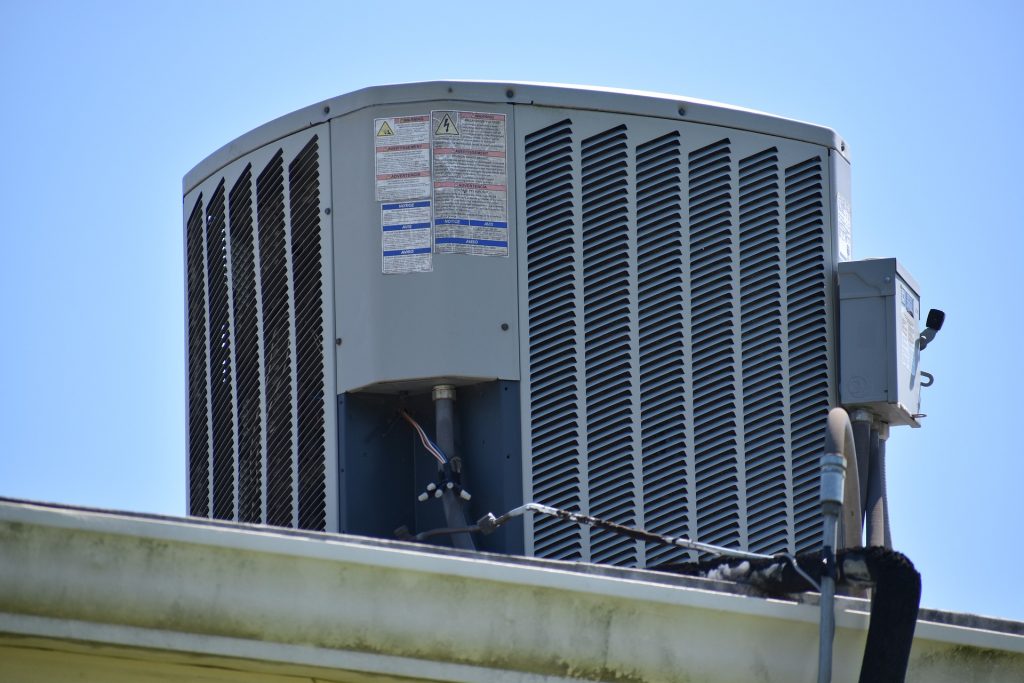
As mentioned earlier, AC compressors are delicate hearts that need to be well monitored and cared for. A small problem can easily trigger a series of issues that will eventually put down your AC compressor for good.
1. Motor issues
Your AC compressor won’t work with a faulty motor. The motor will fail if there is an overload of power that ends up damaging its electrical circuit.
Now, that doesn’t mean your motor is dead and done. Most of the time, the motor will trip if there is an electrical problem. You can reset the motor by looking for and pushing the “reset” button that is right next to it.
2. Burn out
When this happens, your air conditioner compressor won’t even turn on- This time, it is more than an electrical trip.
It’s usually caused by damage in the motor’s wiring. The damage then leads to an electrical short between the compressor and the motor parts. In severe cases, you might deal with an explosion.
3. Shuttering
This is when your AC compressor has difficulties turning on. You might find that your air conditioner turns on, then off, and then on once again before it continues running.
First, check to see if its fuse is in good working condition. If not, you have to replace it (Here’s our article about AC blowing fuse). Next, scan the compressor’s wiring system for any damage and do repairs if they are necessary. If you have no experience working with these kinds of repairs, then it would be best to hire a professional who specializes in AC Repair In Phoenix, AZ to do it instead.
4. Poor cooling
You might have noticed that your air conditioner isn’t cooling as well as it used to. In addition to that, you’ve been hearing fishy sounds at night- From your AC compressor, of course.
Your AC compressor might be having a hard time regulating pressure in the system. Remember that pressure is needed to cool and determine the direction of the flow of the refrigerant.
It might also be that your AC compressor is old and suffering from wear and tear. Therefore, it can no longer run as efficiently as it used to. If your AC is constantly suffering from these issues arising from its age, then maybe it’s time for a replacement. We’ll take care of your AC Installation In Phoenix, Arizona, and make sure that you get the best units for your home or business.
Sometimes the problem might be caused by dirty condenser lines. As time goes by, dirt and slime will accumulate on the condenser coils- This will reduce their efficiency when it comes to losing heat.
Conclusion
A noisy AC compressor is scary to deal with at any given time. It’s even worse if you have no idea whether the issue is serious or not. Either way, it’s better to be safe than sorry.
We’d advise you to regularly check on the heart of your air conditioner, its compressor. You may never know when your AC lasts in Arizona (or the region that you’re currently at). Call in an HVAC professional in case you hear any weird noises and you suspect that something is wrong with your unit. We also recommend checking out these articles on water filtration systems: different types of hot water tanks and how to remove nitrate from well water.
[related_posts_by_tax posts_per_page="3" format="thumbnails" image_size="medium"]


